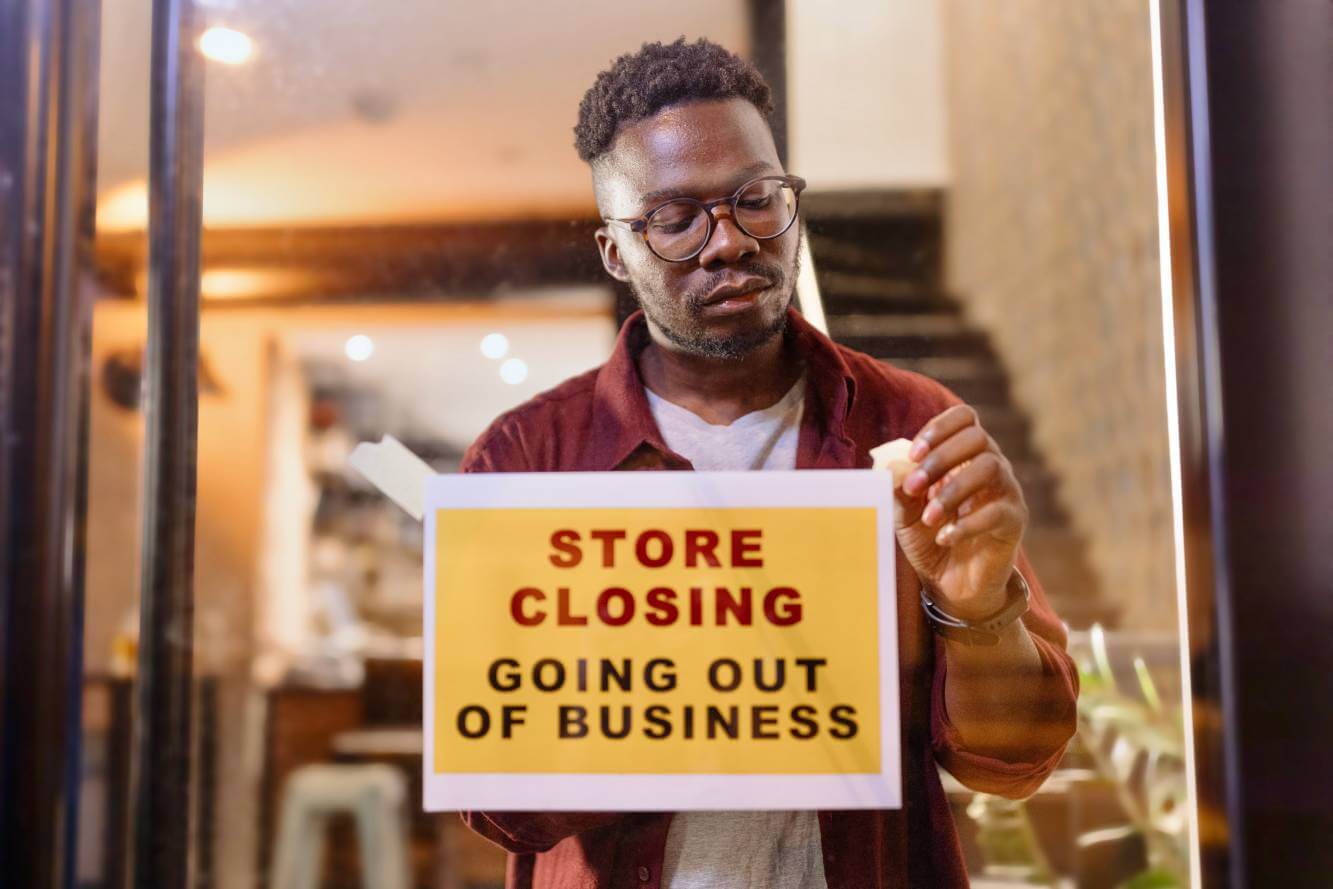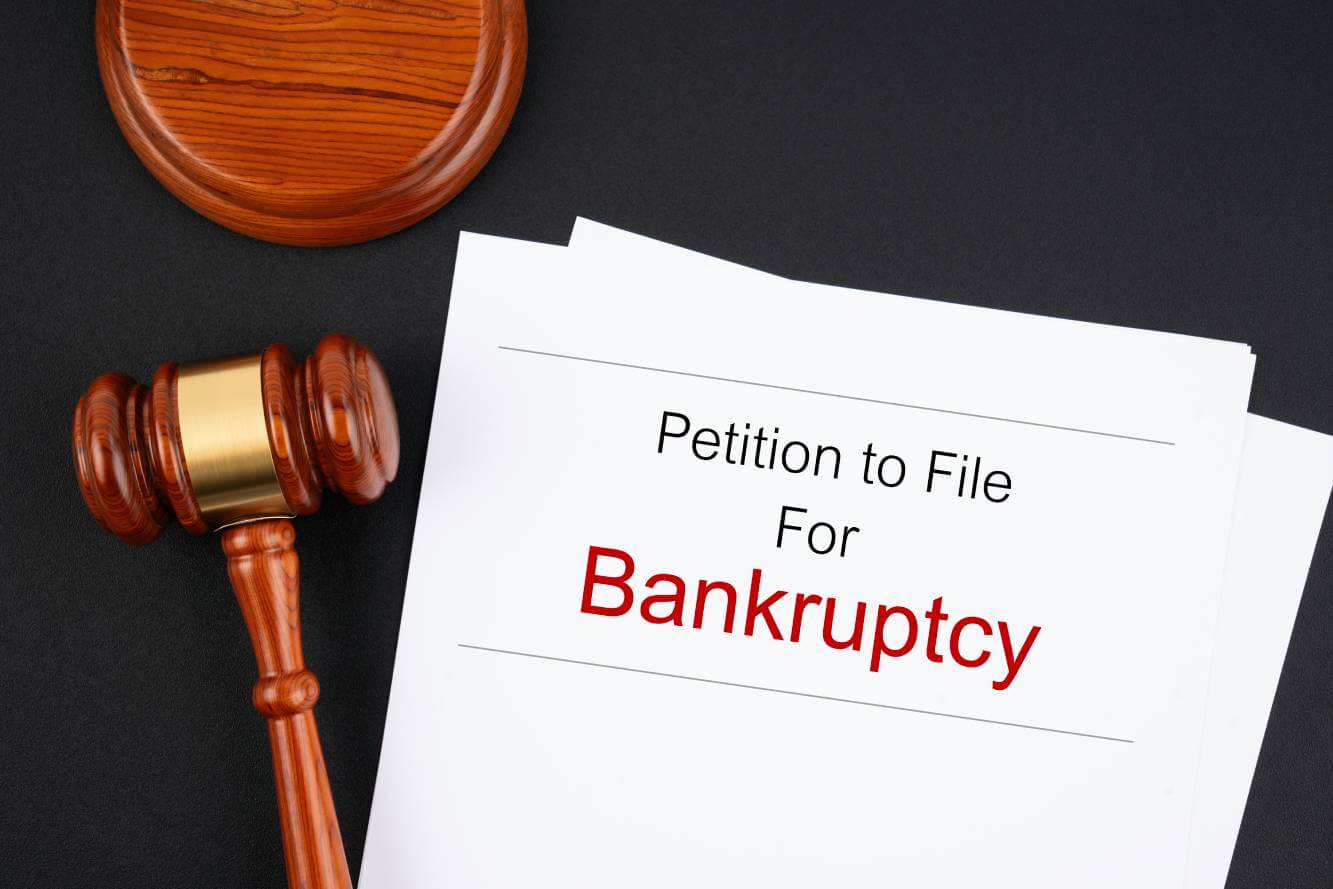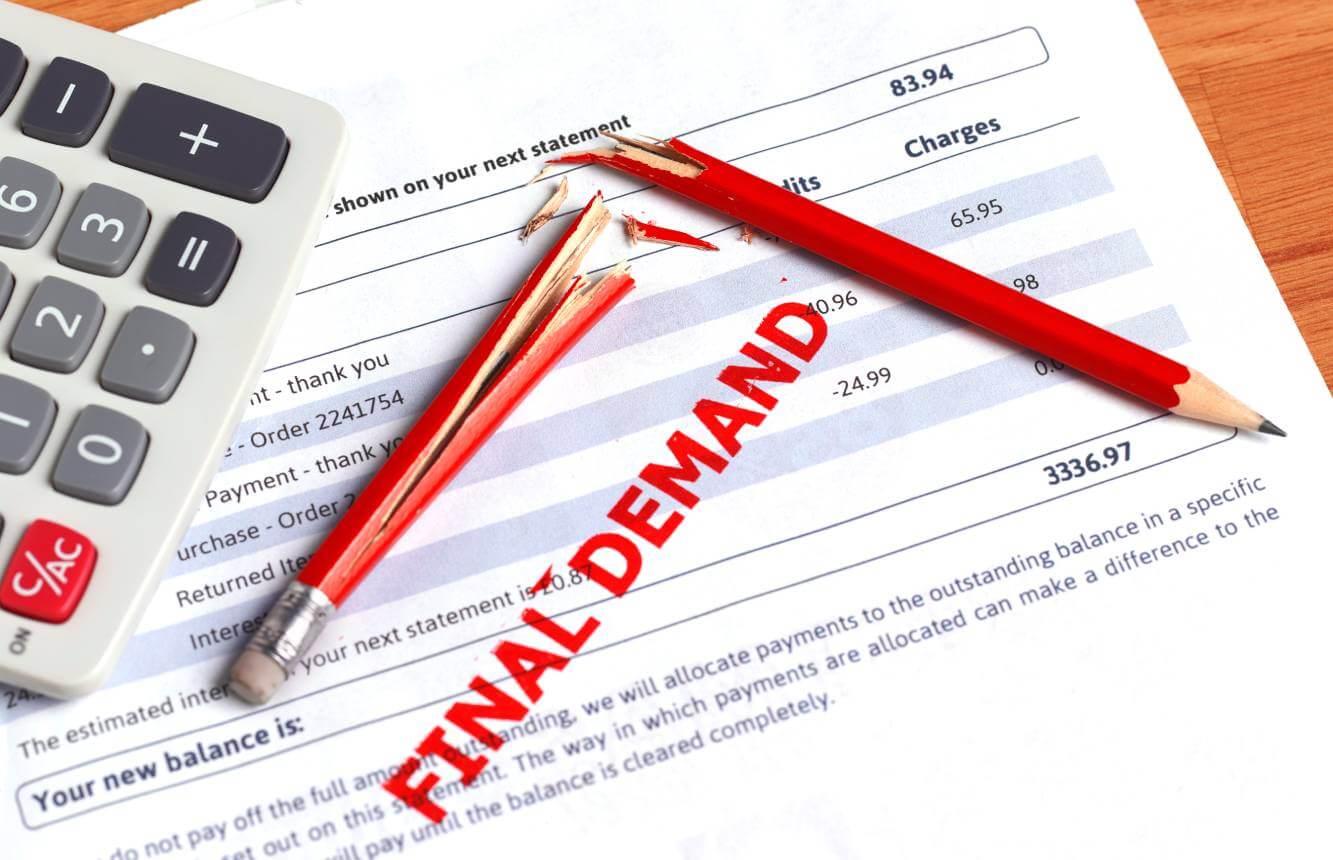When Small Business Bankruptcies Become the Right Choice for Business Owners

Running a small business comes with inherent financial risks, and sometimes small business bankruptcies become the most strategic path forward. With business bankruptcy filings increasing 14.2% in 2024 according to uscourts.gov, understanding your options has never been more critical for business owners facing financial distress.
Business owners need to know what step to take next. That’s why we will walk you through everything you need to know about small business and bankruptcy, from understanding different types of filings to making informed decisions about your business's future.

Understanding small business bankruptcies
What is a small business bankruptcy?
Small business bankruptcies refer to legal proceedings where a business entity or its owner seeks court protection from creditors due to overwhelming debt or financial distress. Unlike personal bankruptcy filings, business bankruptcy filing involves complex considerations around business structure, liability, and operational continuity.
The relationship between personal and business finances varies dramatically based on your business structure:
- Sole proprietorships: Your personal assets are directly tied to business debts.
- LLCs and corporations: These business structures generally provide liability protection, separating personal and business finances.
- Partnerships: Partners may have varying levels of personal liability.
How does business bankruptcy work? Understanding this starts with recognizing that filing bankruptcy as a small business is a legal process that varies significantly based on your entity type and debt level.
Why do small businesses file for bankruptcy?
Business owner bankruptcy typically stems from several common scenarios:
Financial pressures:
- Overwhelming debt obligations
- Significant lawsuit judgments
- Unpaid tax obligations
- Loss of major clients or revenue streams
Industry-specific challenges:
- Restaurants facing high overhead costs
- Retail businesses struggling with inventory and lease obligations
- Construction companies dealing with project delays and payment disputes
Retail sectors can get hit hard by small business bankruptcy. As a result, industry-specific factors can drive small business bankruptcy laws into action.

What happens when a small business files for bankruptcy?
The legal and financial process unfolded
When you initiate a business bankruptcy filing, several immediate changes occur:
Court involvement: The bankruptcy court takes control of your case, appointing a trustee in some chapters and establishing a timeline for proceedings.
Automatic stay protection: This powerful bankruptcy protection immediately stops most collection activities, including:
- Creditor harassment and collection calls
- Lawsuit proceedings
- Bank account levies
- Asset seizures
Creditor notifications: All creditors must be notified of the filing by the court clerk, and the creditor has specific timeframes to file claims against your business.
Impacts on business operations
Operational considerations:
- Whether your business can continue operating during proceedings
- How employee obligations and payroll are handled
- The status of existing contracts and vendor relationships and any notice requirements
- Changes to day-to-day management authority
Asset management: The court may require detailed inventories of business assets and ongoing reporting of financial activities.
Impacts on the business owner
Personal liability exposure: For sole proprietors, business owner bankruptcy often means personal assets are at risk. LLC owners generally have more protection, but personal guarantees can pierce this corporate veil, thereby making the owners or shareholders’ personally liable.
Credit implications: Bankruptcy may appear on personal credit reports and can affect your ability to obtain financing for future business ventures.

Should you or your business file for bankruptcy?
Choosing between business and personal bankruptcy
The decision of whether to file business bankruptcy, personal bankruptcy, or both depends on several factors:
Business entity considerations:
- Sole proprietors often need personal bankruptcy since business and personal debts are intertwined.
- LLC and corporation owners may file business bankruptcy while protecting personal assets.
- Personal guarantees can complicate this separation.
Debt analysis: Understanding which debts are business-related versus personal helps determine the appropriate filing strategy.
Evaluating your financial position
Before exploring how to file business bankruptcies, consider whether alternative solutions might work:
Alternatives to bankruptcy:
- Informal debt restructuring with creditors
- Asset-based lending or refinancing
- Business sale or merger opportunities
- Work out agreements with major creditors
When bankruptcy becomes necessary:
- Debts exceed assets significantly
- Cash flow cannot support minimum debt payments
- Creditors are pursuing aggressive collection actions
- The business cannot operate profitably under current debt load
Understanding the different types of small business bankruptcy
Chapter 7 bankruptcy: Why it's rare for small businesses
Chapter 7 is a liquidation process where business assets are sold to pay creditors, and the business ceases operations.
Key characteristics:
- Complete liquidation of business assets
- Business operations terminate
- No opportunity for reorganization or debt restructuring
- Relatively quick process (3-6 months)
Can I keep my business if I file Chapter 7? Unfortunately, the answer is no – most of the time. Chapter 7 means your business will likely be dissolved, making it unsuitable for owners who want to continue operations. There is a small possibility that you could keep your business running if you don’t have many assets, but this isn’t easy.
When Chapter 7 makes sense:
- The business has no viable path to profitability.
- Liquidation value exceeds reorganization potential.
- Owner wants to completely exit the business.

Chapter 13 bankruptcy for business owners
Chapter 13 is only available to sole proprietors, not LLCs or corporations.
Key features:
- Allows debt repayment over 3-5 years
- Business can continue operating
- Debt limits apply (currently around $419,275 in unsecured debt and $1,257,850 in secured debt)
- Requires regular income to fund the repayment plan
Can I keep my business if I file Chapter 13? Yes, if you're a sole proprietor and can demonstrate ability to make plan payments while maintaining operations.
Qualifying factors:
- Steady business income
- Debts within statutory limits
- Ability to propose feasible repayment plan
Chapter 11 bankruptcy and business reorganization
Bankruptcy Chapter 11 is the most complex but flexible option for bankruptcy restructure.
Who can file Chapter 11:
- LLCs and corporations
- Sole proprietors with debt exceeding Chapter 13 limits
- Businesses needing comprehensive debt restructuring
The reorganization process:
- Business continues operating as "debtor in possession"
- Court oversees major business decisions
- Creditors vote on proposed reorganization plan
- Plan must be confirmed by the bankruptcy court
Benefits of bankruptcy protection Chapter 11:
- Ability to reject unfavorable contracts
- Potential to reduce rent and other obligations
- Protection from creditor actions while reorganizing
- Opportunity to emerge as a stronger, more viable business
When you need a Chapter 11 bankruptcy lawyer: The complexity of Chapter 11 makes legal representation essential. An experienced Chapter 11 bankruptcy lawyer can help navigate:
- Plan development and creditor negotiations
- Court procedures and filing requirements
- Asset valuations and debt restructuring
- Operational decisions during the case
Unfortunately, many lawyers cost hundreds or thousands of dollars in legal fees. This can make seeking legal counsel feel just as intimidating and impossible as dealing with bankruptcy issues. That’s why we will tell you later about LegalShield – essential legal services that can get you the help you need with breaking the bank. Keep reading to learn more about your options.
Types of bankruptcies for LLCs and other entities
Types of bankruptcies for LLC structures
Available options:
- Chapter 7: Liquidation (business dissolves)
- Chapter 11: Reorganization (business continues with restructured debts)
Not available to LLCs:
- Chapter 13: Limited to individuals/sole proprietors
Corporate bankruptcy options
- Similar to LLCs, corporations can file Chapter 7 or Chapter 11, but not Chapter 13.
Partnership considerations
- Partners may need to consider both business and personal bankruptcy depending on partnership structure and personal guarantees.
When creditors force your business into bankruptcy
What is involuntary bankruptcy?
Sometimes small business bankruptcies are initiated by creditors rather than the business owner.
Requirements for involuntary filing:
- Three or more creditors with combined unsecured claims of at least $18,600
- OR one creditor with claims of at least $18,600 if the business has fewer than 12 creditors total
- Debts must be undisputed or subject to bona fide disputes
Creditor motivations:
- Preventing preferential payments to other creditors
- Forcing business liquidation or reorganization
- Gaining leverage in collection efforts
What to do if this happens to you
Immediate actions:
- Contact a lawyer immediately.
- Gather financial documentation.
- Review the legitimacy of creditor claims.
- Consider negotiating with creditors to withdraw filing.
Legal defenses:
- Challenge the validity of creditor claims.
- Demonstrate business solvency.
- Prove you're paying debts as they become due.
- Negotiate voluntary alternatives.
Life after bankruptcy: What happens next
Discharge and final court orders
Debt discharge process: Most business debts are eliminated upon successful completion of your bankruptcy case.
Debts that may survive bankruptcy:
- Certain tax obligations
- Student loans (rare for business context)
- Secured debts beyond collateral value
- Debts incurred through fraud
Final court orders: The court issues a discharge order and closes your case, typically 3-6 months after filing for Chapter 7, or 3-5 years for reorganization cases.
Can you still operate or reopen a business?
Yes, depending on what type of bankruptcy you file, you absolutely can. Whether you're looking to keep your current business going or start something brand new, bankruptcy doesn’t automatically shut the door on your future plans. Here’s how it typically works:
Continuing operations:
- Chapter 11 lets businesses continue operating while they reorganize debt under court supervision. This is often used by larger companies or partnerships.
- Chapter 13 is ideal for sole proprietors who want to keep running their business while restructuring personal and business debts into a manageable payment plan.
- Chapter 7 usually means the business closes and its assets are sold off. However, there's nothing stopping the business owner from starting a brand-new venture after the process ends.
Starting fresh after bankruptcy:
- There are no laws that prevent you from launching a new business after filing for bankruptcy.
- That said, getting it off the ground might come with some extra hurdles, especially when it comes to accessing credit or financing.
- Lenders may be cautious, and you could face higher interest rates or stricter terms at first.
- However, using what you learned from previous mistakes can actually make your next business even stronger.
Financial considerations:
- Securing business loans after bankruptcy can be tricky at the start. Lenders will look closely at your credit history.
- Expect to see higher interest rates and fewer loan options in the beginning.
- Over time, with steady financial habits and smart decisions, you can rebuild credit and gain better access to funding.
Rebuilding credit and reputation
Bouncing back after bankruptcy takes time, but with the right steps, it's completely possible to rebuild both your credit and your business reputation. Here's how to move forward with confidence:
Credit restoration strategies:
- Stay current on remaining debts: Making consistent, on-time payments on any surviving loans or obligations helps rebuild trust with creditors.
- Open new trade credit accounts: Start forming relationships with vendors or suppliers who offer payment terms. Small, consistent activity can show positive credit behavior.
- Watch your credit reports: Regularly check your personal and business credit reports for errors. Disputing any mistakes can speed up your recovery.
- Use secured credit cards: These can be a great tool for rebuilding credit. They typically require a deposit but report to credit bureaus like a traditional card.
Business reputation management:
- Be open with new partners: If vendors or customers ask, be honest about your situation, and show how you're turning things around.
- Focus on service and reliability: Strong customer experiences and smooth operations go a long way in building trust and reputation.
- Manage your cash carefully: Keeping a healthy cash flow shows you're running a stable business and can help prevent future financial stress.
- Connect with supportive lenders: Some financial institutions are more open to working with post-bankruptcy businesses. Building relationships early can lead to better options later.
Timeline expectations:
- Chapter 7 stays on your credit report for 10 years, while Chapter 11 and Chapter 13 show up for 7 years.
- Despite this, many people see practical improvements in credit within just one to two years, especially when they take proactive steps to rebuild.

Making the right decision about bankruptcy
Final considerations
Small business bankruptcies are not a sign of failure—they're a legal tool designed to help businesses and owners manage overwhelming debt and find a path forward.
Key decision factors:
- Your business's viability and future prospects
- Personal liability exposure
- Available alternatives to bankruptcy
- Long-term business and personal goals
Understanding the process empowers better decisions: Knowledge of small business bankruptcy laws and procedures helps you regain control of your financial situation and make strategic choices for your future.
Professional guidance matters: Whether you're considering business bankruptcy Chapter 7 or 11, working with experienced legal and financial professionals can significantly impact your case outcome and future opportunities.
Get the legal support your small business needs
Managing the complexities of small business bankruptcies and other legal challenges requires expert guidance. LegalShield Members have access to experienced attorneys who can help with various small business legal issues, from contract reviews to regulatory compliance questions.
LegalShield's Business Plus Add-on provides additional tools and support designed specifically for small business owners who have a LegalShield plan, including:
- Business consultation services with partnering attorneys
- Access to essential business forms and documents
- Professional website building tools
- Customer relationship management (CRM) systems
- Marketing and business development resources
For an affordable price in addition to your LegalShield plan, the Business Plus Add-on gives you comprehensive support to help your business succeed while protecting your legal interests.
_____________________________________________________
Written by Elyse Dillard, Content Specialist at LegalShield. Elyse creates educational resources about legal and identity theft protection services. She works to make complex legal concepts more accessible to readers and has contributed to numerous articles on the LegalShield blog.
Pre-Paid Legal Services, Inc. ("PPLSI") provides this blog as a public service and for general information only. The information made available in this blog is meant to provide general information and is not intended to provide legal advice, render an opinion, or provide a recommendation as to a specific matter. The blog post is not a substitute for competent legal counsel from a licensed professional lawyer in the state or province where your legal issues exist, and you should seek legal counsel for your specific legal matter. All information by authors is accepted in good faith. However, PPLSI makes no representation or warranty of any kind, express or implied, regarding the accuracy, adequacy, validity, reliability, availability, or completeness of such information. The materials contained herein are not regularly updated and may not reflect the most current legal information. No person should either act or refrain from acting on the basis of anything contained on this website. Nothing on this blog is meant to, or does, create an attorney-client relationship with any reader or user. An attorney-client relationship may be formed only after the execution of an engagement letter with an attorney and after that attorney has confirmed that no conflicts of interest exist. Nothing on this website, or information contained or transmitted by this website, is intended to be an advertisement or solicitation. Information contained in the blog may be provided by authors who could be a third-party paid contributor.
PPLSI provides access to legal services offered by a network of provider law firms to PPLSI members through membership-based participation. Neither PPLSI is not a law firm, and its officers, employees or sales associates do not directly or indirectly provide legal services, representation, or advice.
Ready to protect your business and get the legal support you deserve?
Learn more about our small business legal solutions.
LegalShield is a trademark of Pre-Paid Legal Services, Inc. (“LegalShield”). LegalShield provides this blog as a public service and for general information only. The information made available in this blog is meant to provide general information and is not intended to provide legal advice, render an opinion, or provide a recommendation as to a specific matter. The blog post is not a substitute for competent legal counsel from a licensed professional lawyer in the state or province where your legal issues exist, and you should seek legal counsel for your specific legal matter. All information by authors is accepted in good faith. However, LegalShield makes no representation or warranty of any kind, express or implied, regarding the accuracy, adequacy, validity, reliability, availability, or completeness of such information. The materials contained herein are not regularly updated and may not reflect the most current legal information. No person should either act or refrain from acting on the basis of anything contained on this website. Nothing on this blog is meant to, or does, create an attorney-client relationship with any reader or user. An attorney-client relationship may be formed only after the execution of an engagement letter with an attorney and after that attorney has confirmed that no conflicts of interest exist. Nothing on this website, or information contained or transmitted by this website, is intended to be an advertisement or solicitation. Information contained in the blog may be provided by authors who could be a third-party paid contributor. LegalShield provides access to legal services offered by a network of provider law firms to LegalShield members through membership-based participation. LegalShield is not a law firm, and its officers, employees or sales associates do not directly or indirectly provide legal services, representation, or advice.



